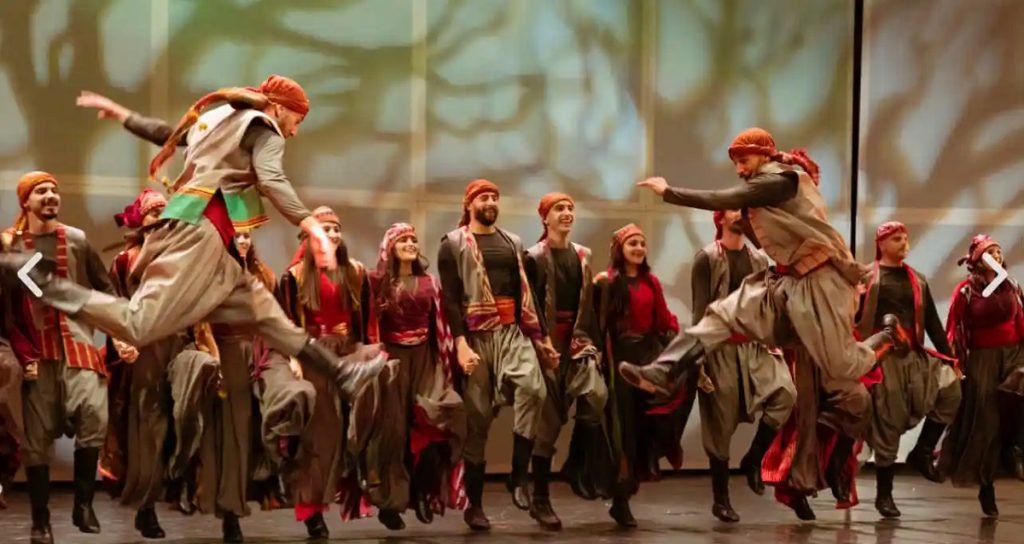The Palestinian Popular Arts Troupe is dazzling audiences across the United States with its passionate performances and educational workshops that celebrate the richness of Palestinian art and heritage. The group’s ongoing U.S. tour has drawn significant attention from American audiences eager to experience authentic cultural expressions of Palestine through dance, music, and storytelling.
Between October 9 and 13, the troupe performed a series of dabke shows and workshops at cultural centers and venues in New York City, offering both artistic excellence and cultural education. Each performance serves as a vibrant reminder of the Palestinian people’s identity, history, and resilience.
Preserving Palestinian Heritage Through Dance
Founded in 1979, the Palestinian Popular Arts Troupe is one of the oldest and most respected cultural organizations in Palestine. As a non-profit and semi-voluntary institution, it brings together around 300 members, all united by a common mission: to preserve and promote Palestinian folk art and convey its enduring message of resistance and hope.
The troupe has produced 16 major dance productions and delivered over 1,000 performances in Palestine and around the world, earning numerous Arab and international awards.
At the heart of their performances lies the dabke, a traditional Palestinian folk dance symbolizing joy, solidarity, and defiance. For the troupe, dabke is more than movement — it’s a cultural act of expression, embodying the spirit of freedom and unity among Palestinians.
A Living Story on Stage: “Tawasol” (Connection)
Their latest production, titled “Tawasol” (Connection), was showcased at the La MaMa Theater in New York City from October 10 to 12. The show offered an innovative blend of dynamic dance, live storytelling, and audience participation, immersing attendees in the lived experiences of the dancers and the deep cultural lineage they carry — from generation to generation.
Audiences were invited to witness the continuity of Palestinian cultural identity, exploring how tradition evolves without losing its roots.
Workshops: Teaching Dabke, Building Bridges
In addition to their stage performances, the troupe conducted three dabke workshops across New York:
-
October 9: at The People’s Forum in Manhattan, sponsored by Arab Socials.
-
October 11: at La MaMa Theater, supported by Movement Research.
-
October 13: organized by Social Workers for Justice in Palestine.
Participants of all ages — from beginners to professional dancers — enthusiastically joined in learning the steps of Palestinian dabke through an interactive and engaging experience.
Broadway artist Christina Clark praised the performance, calling it “a mesmerizing artistic journey,” and expressed hope to see the troupe perform on Broadway stages in the near future.
Voices from the Stage
During the workshops, dancer Noura Bakr spoke about the cultural and historical significance of dabke, explaining how it reflects the collective strength of the Palestinian people.
Reham Barghouti encouraged attendees to support the troupe and participate in its upcoming events to help sustain Palestinian cultural representation abroad.
The event concluded with an emotional moment when artist Noura presented an honorary plaque to Ms. Mia, the director of La MaMa Theater, in recognition of her support and collaboration with the troupe.
A Living Embodiment of Palestinian Art
For over four decades, the Palestinian Popular Arts Troupe has embodied the soul of Palestine — a fusion of creativity, resistance, and cultural pride. Their U.S. tour not only showcases dance but also tells the ongoing story of a people preserving their identity through art, one performance at a time.

